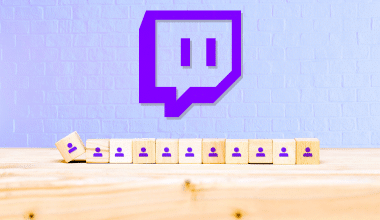Social media has become integral to our lives, changing how we interact and consume information. It has become a powerful tool for individuals to express themselves and also for businesses to connect with customers and promote their products or services. With the growth in the number of social media users worldwide and widespread reach and influence, the positive and negative effects of social media on the mental health of teens and society at large have also grown.
In this article, we will discuss the various negative effects of social media on society that can harm your life and share tips on how to deal with these effects.
With the number of social media users worldwide continuously growing, reaching about 4.80 billion social media users globally in April 2023, there’s no denying the widespread reach and influence of these social media platforms. Also, one of the reasons for the high usage of social media is its increasing accessibility through mobile devices. Most social media networks are available as mobile apps or have been optimized for mobile browsing, making it easier for users to access their favorite sites while on the go. 91% of all social media users access social channels via mobile devices.
Social media significantly impacts human interaction and consumer behavior. According to a study, 75% of internet users use social media to research products, and many buyers rely on social media networks to look for reviews, recommendations, and inspiration for things to do and buy. Also, many people rely on social media to communicate with their friends and family across the globe. Therefore, having an online presence means being connected to the rest of the world and not being out of the loop.
The Positive and Negative Effects of Social Media
The effects of social media have been a hot topic for discussion, with assertions on its negative and positive impacts on mental health, teens and society in general.
Social media has both positive and negative effects on mental health and teens. They include the following:
#1. Increased Feelings of Loneliness and Depression
According to a University of Pennsylvania study, one of the effects of frequent use of social media is an increase in feelings of loneliness and depression. Hence, those who used social media less frequently experienced reduced loneliness and depression.
#2. Anxiety and Fear of Missing Out (FOMO)
For teens and adults, the continuous use of social media could be out of the fear of missing out (FOMO). The University of Pennsylvania study showed significant decreases in anxiety and FOMO in those that used social less. Alluding to the fact that social media contributes to anxiety and the fear of missing out on the activities and experiences of others.
#3. Addiction and Dopamine Rush
Another one of the negative effects of social media on the mental health of teens is that it can activate the reward circuits in the brain, leading to addiction. Constantly checking social media platforms can cause a dopamine rush which provides immediate gratification. Hence, the recurrent checking behavior can become addictive and result in mental health issues such as depression and anxiety.
#4. Increase in Cyberbullying
As all kinds of people and individuals fill social media platforms, they can be breeding grounds for cyberbullying, hence severely negatively affecting mental health, particularly for teens. The concern is that constant exposure to cyberbullying can lead to increased stress, anxiety, and depression.
#5. Body Image Issues
Teens often see unrealistic portrayals of beauty and perfection on social media, which can have negative effects on their mental health, leading to them comparing themselves to these idealized images contributing to body image concerns, low self-esteem, and an increased risk of developing eating disorders.
#6. Sleep Disturbances
The excessive use of social media, particularly before bedtime, can disrupt sleep patterns and lead to sleep deprivation. Additionally, the lack of quality sleep can negatively impact mental health, contributing to increased anxiety and mood disorders.
#7. Negative Self-Comparisons
Social media can trigger negative self-comparisons with others, leading to feelings of inadequacy, low self-worth, and decreased self-esteem. Constant exposure to curated and idealized portrayals of others’ lives can create unrealistic expectations and dissatisfaction with one’s life.
Paradoxically, excessive use of social media can lead to social isolation. Spending excessive time on social media can detract from face-to-face interactions and real-life social connections, leading to feelings of loneliness and isolation.
#9. Increased Stress
Constant exposure to social media can contribute to increased stress levels. The pressure to maintain a certain image, keep up with trends, and constantly be connected can be overwhelming and lead to chronic stress.
#10. Negative Impact on Self-Esteem
Social media platforms often promote a culture of comparison and validation-seeking. The focus on likes, comments, and followers can lead to a reliance on external validation for self-esteem, which can be detrimental to mental health.
Nevertheless, the effects of social media on the mental health of teens can vary, and not everyone will experience all of these negative effects. Hence, more research is needed to fully understand the relationship between social media and mental health
There are various negative and positive effects of social media on individuals in society, with the positive including the following
It has been observed that using social media may give a sense of social connectivity and belonging to teens. According to the findings of a poll conducted by Pew Research, 31% of teens believe that using social media has a “mostly positive” impact on their lives. In a different research, over half of the teens claimed that they had both given and received emotional assistance online.
It Helps in Identity Development
The development of a teenager’s identity can be greatly influenced by social media. Social platforms give individuals a platform to communicate their feelings, ideas, and viewpoints, which contributes to the personal fulfillment and self-esteem they experience.
To Connect and Maintain Relationships
Social media platforms have become important tools for engaging with people and keeping relationships alive. They enable quick contact and make it possible to share one’s life experiences through the use of images, videos, and status updates.
It Broadens Viewpoints and Diversifies Networks
One of the positive effects of social media on teens in society is that it helps them diversify their networks, broaden their viewpoints and get rid of negative views they may hold. About two-thirds of teens say social networking sites help them interact with people from different backgrounds, find different points of view, and show support for causes or issues they care about.
Building Communication and Online Editing Skills
Teenagers can improve their ability to communicate with others and their online editing skills by using social media. In light of the fact that these skills are becoming increasingly important in today’s digital world, this can be of particular benefit to them for their future professions.
Civic Engagement and the Visibility of Issues
Social media platforms also make it easy to get involved in things like fundraising and campaigns to raise social awareness. They made more people aware of social, moral, environmental, and political problems. Hence, shifting the balance of power from a few to many. On social media, users can talk about their ideas and experiences and work together to make things better.
The negative effects of social media in society can be significant and have physical and mental implications. Here are some steps to deal with these negative effects:
#1. Recognize the Negative Effects
It is essential to have a solid understanding of the potentially negative effects resulting from excessive use of social media. This involves alterations in one’s vision of the world and of themselves, as well as issues like disinformation, hate speech, censorship, and the dissemination of false news.
Consider reducing social media usage and taking breaks to focus on other aspects of life. Excessive time on social media can negatively impact mood and mental health, leading to anxiety and melancholy. To reduce psychological anguish, limit daily social media usage to half an hour. Set clear time restrictions and use that time for joy and contentment.
#3. Seek Support From Trusted Individuals
If, while using social media, you come across something that makes you feel uneasy or that you become the victim of cyberbullying, which can involve threats or abusive behavior. In a scenario like this one, it is essential to believe your instincts and have an open conversation about how you are feeling with another individual.
#4. Set Goals and Prioritize Real-Life Activities
It’s easy to put real-life goals on the back burner because you’re too busy with social media. Instead of trying to go viral on the internet, you should work on reaching your personal and business goals. To do this, you will have to work hard, stay focused, and try not to get distracted.
#5. Practice Gratitude and Mindfulness
The unpleasant feelings and comparisons that can result from using social media can be avoided to some degree by practicing mindfulness and expressing appreciation. To improve your overall mental health, you might want to think about keeping a gratitude diary, developing a mindfulness practice, or engaging in volunteer work.
#6. Educate Yourself and Others
Keep yourself updated on the potential negative effects of using social media, and teach people how to use these platforms responsibly. Also, you can inspire good online conduct, critical thinking abilities, and fact-checking habits.
#7. Be Mindful of the Content You Consume
Your mental health can be significantly affected by the stuff you read and watch on social media platforms. Consider the social networks you use and the individuals you follow. Also, if after using social media, you find that you are more disturbed or anxious than usual, consider unfollowing any accounts that continually post content that could upset you. Instead, you should follow accounts that post content that is uplifting and positive. Possibly, doing so will assist you in developing a social media atmosphere that is more encouraging and supportive to you.
#8. Practice Critical Thinking
One of the negative effects of using social media is the spread of false information and the incapacity of users to differentiate between genuine and fabricated news stories. For this reason, it is essential to cultivate analytical thinking abilities. Check the accuracy of information before one accepts it as true or passes it on to others. Also, make sure the information you take in comes from respectable sources by conducting research.
#9. Foster Healthy Online Interactions
Social media can often breed hate, harassment, and conflict. It is important to engage in respectful and constructive conversations online. Avoid engaging in online arguments or spreading hate-filled ideas. Instead, focus on building connections and fostering positive interactions with others. Remember that behind every profile is a real person with feelings, and treat others with kindness and empathy.
Social media has both positive and negative effects on the lives of students. It provides opportunities for social connection, communication, self-confidence, learning, and innovation. Also, it helps to boost students’ confidence, improves relationships, and encourages creativity.
However, excessive use can lead to distraction and addiction, negatively impacting academic performance and future careers. Identity crises and self-esteem issues can also arise from the actions and opinions of others on social media platforms. Hence, causing stress, anxiety, and depression. Therefore, students need to regulate and control their use of social media and prioritize academic performance.
Nevertheless, further research is needed to understand the long-term impacts of social media use on students’ states and cultural and educational contexts. Overall, social media has positive and negative effects on students’ lives. Still, they must find a balance and use social media responsibly to ensure it enhances their lives rather than hampers their academic and personal growth.
Conclusion
Social media has become a big part of our lives, and it can have both positive and negative effects on our lives. However, by realizing the ways it can harm us and taking preventive measures, we can hope to reduce the negative impacts and expand the potential positives.
Related Articles
- BEST DEBIT CARDS FOR TEENS IN 2023
- Mental Health Days: What It Means For Employees And Students
- BEST QUICK WAYS TO MAKE MONEY AS A TEEN IN 2023
- WHY IS SOCIAL MEDIA BAD: The Evidence and the Unknown






